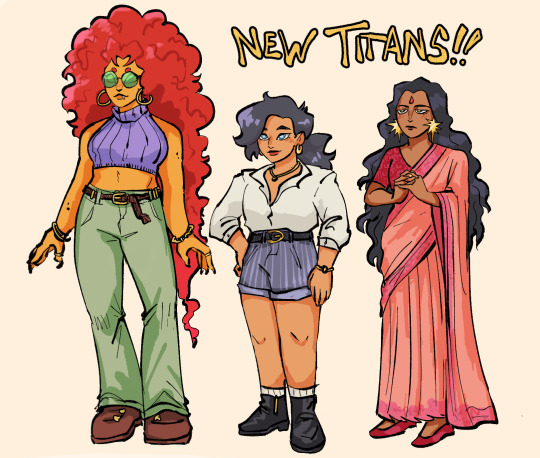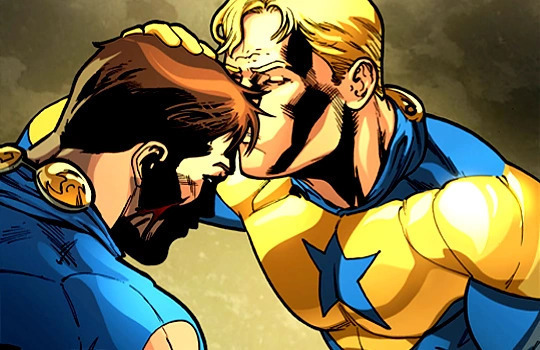20 | lesbian | she/theyillustrator and comic enjoyerprofessional woman lovernot a fandom blog
Last active 60 minutes ago
Don't wanna be here? Send us removal request.
Text
if you think this is crazy wait until round two
9 notes
·
View notes
Note
There's no askbox on the femslash tourney so where/how do you want submissions?
there is an askbox now never fear!! i was just setting everything up :)
1 note
·
View note
Text
this is definitely a good idea <3
#teehee#ship submissions now open#i'll make a more in depth post instructing and going over guidelines tomorrow
8 notes
·
View notes
Text
surely if i start running a marvel femslash bracket tournament in the wake of the psychic damage the dc one has left we will all feel better
8 notes
·
View notes
Text
if stephcass wins the yuri tournament i will draw stephcass wedding this time. like actually. it will happen. but only if they win
11 notes
·
View notes
Text
wlw DC championship - Round one!


207 notes
·
View notes
Text
it's so dark in here........anitacissie losing to harlivy (vile but expected)..selina and lois making it to round two somehow ,,,KORYBABS OF ALL THINGS BEATING ROSECASSIE???? starrae kicking out wondercheetah.....helstarr booting out stephcass..and the icing on the cake. the most befuddling and annoying case of all..a pairing that doesnt even have a ship name somehow beating the juggernaut that is beatora
#what is happening#fran talks#wlwdc im not saying you have bad taste. but. im not saying you have good taste either
14 notes
·
View notes
Note
i will carry on...for you........
but if you kys ........... who will be at the Stephcass frontlines ...........
NOT tumblr user eve2atom!!! she voted for helstarr and i need everyone to know she's a fake stephcass fan before i go 😤
16 notes
·
View notes
Text
stephcass out in round one....... harlivy moving forward....... i can't take this guys i really can't
#harlivy going farther than stephcass.....ivycat having to go against dinahbabs first...#kate and julia (WHO DONT EVEN HAVE AN AGREED UPON SHIP NAME) some how pushing beatora out#literally what is going on.#i doubt at this rate that donnakory will make it very far i dont even have a dog in this fight at all anymore
23 notes
·
View notes
Text


My girlssss
275 notes
·
View notes
Text
sans until further notice you are my public enemy number one
11 notes
·
View notes
Text
wlw DC championship - Round one!


207 notes
·
View notes
Text
WHAT.
is tumblr user arrow-ettes aware of the conflict her wlw tournament has ignited in sapphic dcblr.....
24 notes
·
View notes
Text
ok nm i dont even care. its a stupid tumblr poll that doesn’t mean anything. everyone knows logically that beatora are insane about each other.
trying so hard to be civil.
7 notes
·
View notes
Text
trying so hard to be civil.
#kate is very interesting and a cool character!! her relationship with julia had potential!#but they could never even hold a candle to bea and tora. like. they could literally never be them.#kate and julia is a cute ship but beatora????babes they reinvent queerbaiting everyday#bea thought the line ‘there is no one else on the planet i love more than her’ and that was just in a gag anthology#theyre WORSE in main runs#guys please. what the hell is happening.#fran talks
7 notes
·
View notes
Text
the most annoying person you know: dante’s inferno is such a fanfiction and my favorite painting is the creation of adam and this is my henry winter study playlist and i want to read sappho with my girlfriend in a field and make out in the greek statue wing of an art museum and im a sapiosexual quote poetry to me i love being an intellectual who is langston hughes? who is james baldwin? basquiats art isn’t aesthetic :( i like caravaggio :) yes i know african art history i love ancient egypt. did you know antigone is a feminist? who is audre lorde? i don’t know any rappers i only listen to tchaikovsky and hozier. public libraries are so punk! look at this tweed blazer i got on shein! who is zora neale hurston?
1K notes
·
View notes


